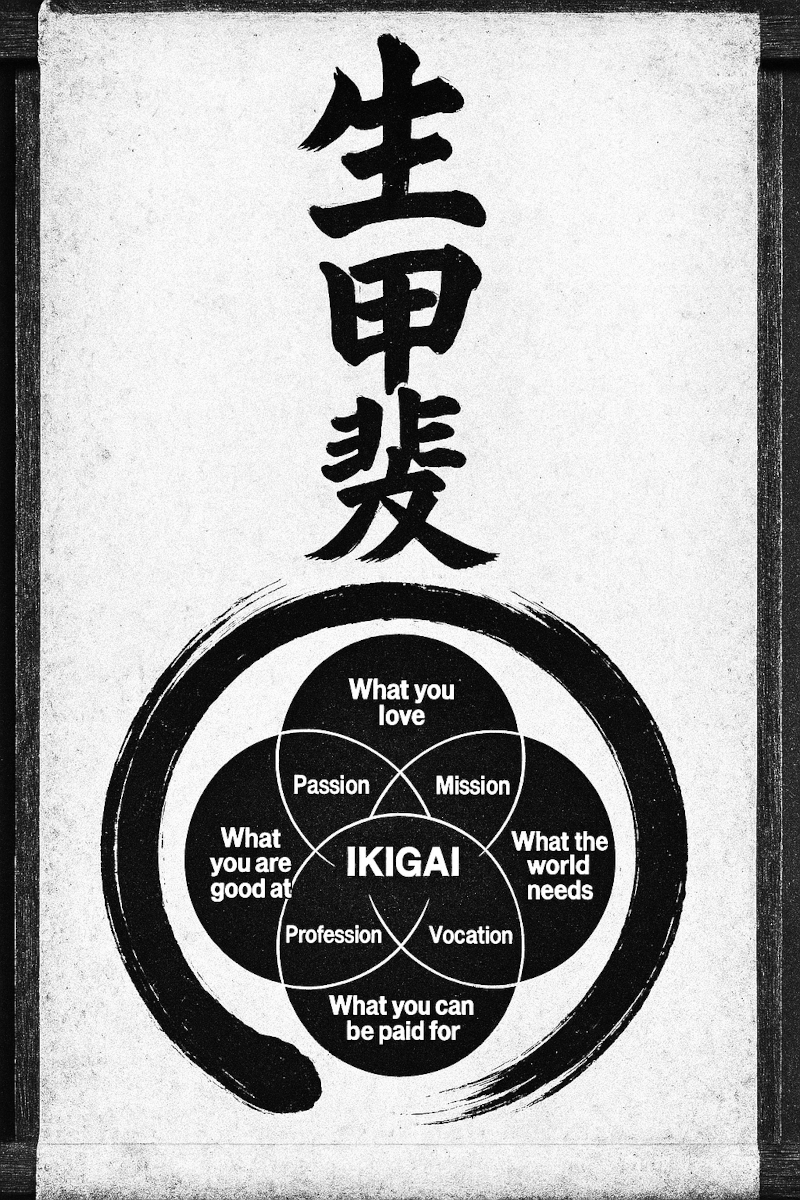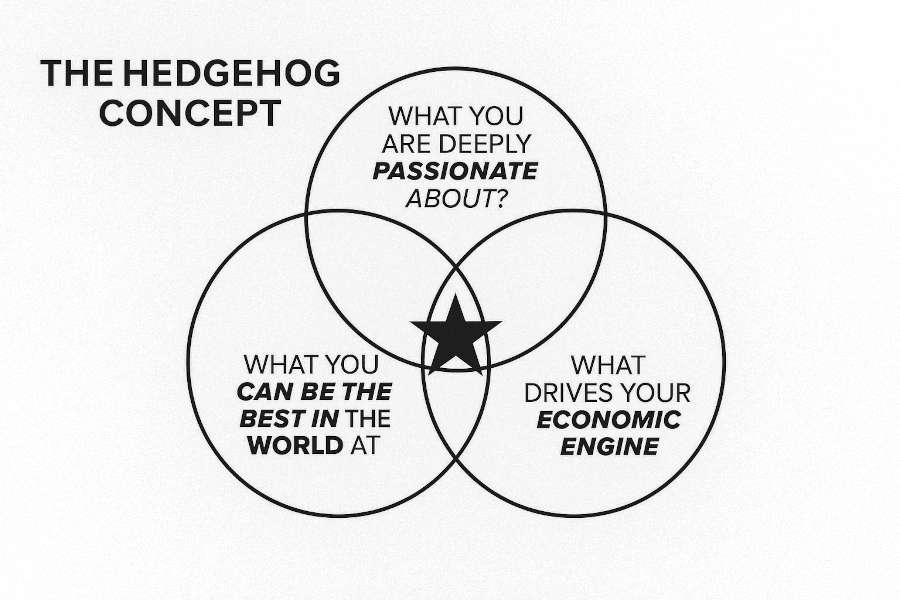IKIGAI And Hedgehog Concept
生き甲斐 (IKIGAI)

Ikigai is a Japanese concept that means "a reason for being." I suppose you could loosely read it as a "way of life" as well. It tries to answer the age old questions of:
- what is the meaning of life?
- what is the point of life?
- what are you doing with your life?
- what should you be aiming for?
To that effect, it tries to harmonise 4 different aspect of your life:
- What you love: For example, you might love creating art, helping others, solving complex problems, or playing video games for that matter.
- What you are good at: For example, you might be skilled at writing, programming, teaching, getting people to help you.
- What the world needs: This could involve addressing social issues, environmental challenges, or helping individuals improve their lives.
- What you can be paid for: For example, you might work in a job that pays you to write, code, or teach.
Finding your Ikigai involves self-reflection and exploration of these elements to discover a fulfilling and meaningful life path.
When you only have two of these
- Passion = What you love + What you are good at. When you have both, it can be something you are passionate about. For example, if you love painting and are good at it.
- Mission = What you love + What the world needs. When you have both, it can be your mission. For example, if you love teaching and the world needs more educators, that can be your mission.
- Profession = What you can be paid for + What you are good at. When you have both, it can be your profession. For example, if you are a skilled programmer and can be paid for your work, that can be your profession.
- Vocation = What you are good at + What the world needs. When you have both, it can be your vocation. For example, if you are a talented counsellor and the world needs more mental health support, that can be your vocation.
When you only have two of these
-
Satisfaction = Passion + Profession. When you have both passion and profession, you will be satisfied.
But unless it meets with what the world needs, you will have a sense of uselessness. For example, if you are a talented artist but the world doesn't value your art, you may feel unfulfilled. -
Delight = Passion + Mission. When you have both passion and mission, you will feel a sense of delight.
But unless you can be paid for it, you will have no wealth. For example, if you love teaching and the world needs more educators, but you are not compensated for your work, you may feel unfulfilled. -
Excitement = Mission + Vocation. When you have both mission and vocation, you will feel a sense of excitement.
But unless you are also good at it, you will feel a lot of uncertainty. For example, if you are passionate about helping others and the world needs more mental health support, but you are not skilled in counselling, you may feel overwhelmed. -
Comfortable = Profession + Vocation. When you have both profession and vocation, you will feel a sense of comfort.
But unless you also love it, you will feel a sense of emptiness. For example, if you are a skilled programmer and can be paid for your work, but you don't love programming, you may feel unfulfilled.
Ikigai = Passion + Mission + Vocation + Profession
You get ikigai when all four of those intersect. In the context of your career, identifying your Ikigai can help you align your work with your values and passions, leading to greater job satisfaction and overall happiness.
For example, many many years ago, I invested a lot of time into a japanese martial art called Kendo. Perhaps the same can be said about my childhood obsession with video games. I loved it and I was getting good at it. But the world didn't need more Kendo practitioners and video gamers. Well, maybe there is a limited need out there that is occupied by top martial artists and professional gamers. I certainly didn't fit that bill. And it's not something I could make a living from either. So naturally, they took a back seat as my career took off.
In another example, I loved building software. I got hooked onto it at an early age and never stopped doing it. I became good at it and the world needed more software. It was also something there was a lot of demand for in the job market. So it fit my ikigai perfectly to continue pursuing it.
Take some time to think about each of these elements in relation to your own life and career:
- What do you love?
- What are you good at?
- What does the world need?
- What can you be paid for?
By exploring these questions, you can begin to uncover your own Ikigai and create a more fulfilling career path.
Hedgehog Concept

This is not too different from what is referred to as the "Hedgehog Concept" in business.
A mentor of mine recommended the book Good to Great by Jim Collins, which introduces this concept.
This is based on the idea that organizations should focus on something they are passionate about, their competitive advantage and opportunities with economic potential. When there is an intersect of all three, you get the Hedgehog Concept.
It says organisations but I think it applies equally to individuals as well.
- If you only have passion and competitive advantage, but not economic potential, you will not have wealth.
- If you are only focused on competitive advantage and economic potential but it's not something you can be passionate about, you will feel empty and unmotivated.
- If you are only focused on passion and economic potential but it's not something you are good at, you will be frustrated.
I have great issue with the unscientific nature of their research methodology but I appreciate the framework it provides for thinking about these concepts.